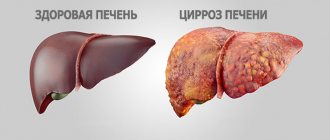The causes and consequences of this negative condition are being studied by specialists from all countries to prevent the pathological situation and prevent the death of the fetus in the womb. Fetal development can stop at any stage, after which the woman’s body rejects the non-viable tissue.
According to global medical statistics, symptoms of frozen pregnancy are observed in 20% of women who decide to conceive. Those at risk are those who have crossed the threshold of 35 years of age and who have experienced a similar condition earlier.
Why does pregnancy stop?
Among the provocateurs of frozen pregnancy are:
1. Genetic factor or chromosomal abnormalities - mutations lead to the death of the embryo, due to the rules of natural selection of viable organisms. In most cases this occurs between 2 and 8 weeks, but it can happen later. The occurrence of a genomic abnormality is considered to be a mistake of nature, an accident. The disorder can be caused by a genetic deformation of one of the parents, which is inherited. To eliminate the risk of miscarriage, parents should undergo genetic counseling at the planning stage. If the pregnancy fails again, the supervising doctor issues a referral for a free genetic examination of the couple.
2. Infectious process - infections of a bacterial, viral, parasitic nature provoke fetal death in the early stages of development. Complications can be prevented by previous vaccination and timely visit to medical institutions to take adequate measures. Chronic infections of the female body lead to the formation of unfavorable conditions for the development of the fetus and can cause disturbances in the formation of the embryo that are incompatible with life. Much depends on the route of penetration of the provoking factor, the activity and type of pathogen. One of the main causes of missed pregnancy is TORCH infections - toxoplasmosis, rubella, cytomegalovirus infection and herpes, which cause up to 90% of disorders in the pregnancy program.
3. Fetal death is also provoked by disharmonious immune relationships . Deformation of a chromosomal nature leads in 60% of non-developing pregnancies in the first 6 weeks, in 20% - at 15 weeks, in 4% - up to 28 weeks. The older a woman is, the greater the likelihood of developing a chromosomal abnormality.
4. Of no small importance are thromboembolic complications caused by blood clotting disorders in the expectant mother.
5. Hormonal imbalance - the basis for testing is the study of progesterone, testosterone, 17-KS, DGAES. Lack of progesterone and excess of androgens often provoke missed abortion. It happens that the texture of the endometrium, damaged by previous abortions, does not allow the fertilized egg to take hold. This deficiency is neutralized with the help of hormone therapy.
6. Anembryony is the absence of an embryo inside the egg, in which tests for hCG levels in urine and blood give a positive result. The hormone continues to produce the fertilized sac. The situation ends in miscarriage when the egg leaves the inner cavity of the uterus.
7. Bad habits. Practice shows that in the question of why pregnancy falters, drinking alcoholic beverages and smoking are not the least important. The risk of developing pathology is higher in people with bad habits.
8. Weight – exceeding the normal body weight index provokes a stop in the development of pregnancy. Being underweight has a similar effect.
9. Anomalies in the development of the uterus - pathologies in the structure of the organ, neoplasms, tumors provoke miscarriage.
10. Aggressive drug therapy - taking non-steroidal anti-inflammatory drugs, contraceptives, hormones in the early stages can stop the normal development of the embryo.
11. Intoxication of the mother with chemicals , other harmful factors - unfavorable working conditions with an increased risk to health.
12. Chronic diseases of the hematopoietic , cardiovascular systems, kidneys.
13. Carrying several embryos - the risk of fading is higher than when carrying one fetus.
14. Carrying out IVF - the mechanism of termination of pregnancy is poorly understood, but it is known that artificial insemination more often follows a negative scenario.
15. Unknown factors. Doctors in the emergency departments of gynecological hospitals note a strange trend - the admission of women with frozen pregnancies is wave-like. The reasons have not been definitively identified, but the fact forms the statistics of observations of the pathological syndrome.
Among the provocateurs of frozen pregnancy, one can also note diabetes mellitus, increased physical activity of the mother, stress and depression. The 8th week is considered the most dangerous, when the fetus acutely perceives any teratogenic effects.
Dangerous timing: when can it happen?
Fetal development can stop at any time up to 28 weeks (in rare cases, cessation of development can occur later), but the greatest likelihood of such a pathology occurs in the first trimester. There are also several periods with the highest risks of frozen pregnancy, these include the following periods:
- 3-4 weeks;
- 8-10 week;
- 16-18 weeks.
It is these periods that most often become critical for pregnancy.
Alcohol and frozen pregnancy
For a long time, doctors have been arguing about the use of alcohol during pregnancy. Some allow slight deviations from the recommended rules, others categorically prohibit the consumption of alcoholic beverages, even in small doses.
Large doses of alcohol during pregnancy threaten:
- freezing of the embryo, cessation of its development;
- abnormal defects of the fetal heart muscle, underdevelopment of the brain;
- miscarriage, spontaneous abortion;
- premature birth;
- birth of a child at term with low weight.
It is a mistake to believe that beer labeled “non-alcoholic” bypasses the taboo imposed on alcohol and does not cause adverse reactions. Each composition released by modern manufacturers contains an alcohol-containing formula. The safety of the product due to the low concentration of the dangerous substance has not been scientifically proven, so including the drink in the list of prohibited items is the right step towards the birth of a healthy child. Recent studies have shown that in addition to beer, you should also abstain from kvass, which contains up to 2.6% alcohol.
Psychological causes of frozen pregnancy
Experts include the following as the main provocateurs of the condition:
- emotional instability, psychological and intellectual overload;
- family quarrels, nervous atmosphere at work;
- personality traits of a pregnant woman;
- psychological immaturity for the birth of a child, unpreparedness or unwillingness to give birth, to bind oneself to obligations, the bonds of motherhood;
- state of chronic, incessant stress, depressive psychoses.
Signs of a frozen pregnancy
The first signs of a frozen pregnancy can be noticed by listening to your own health. The following symptoms should cause caution :
- An abrupt cessation of toxicosis , if previously nausea and dizziness appeared with any foreign smell or movement.
- Softening the mammary glands , stopping their enlargement. After swelling and soreness, the breasts become resistant to mechanical stress. Separately, these signs of a frozen pregnancy do not mean anything. Many women note that a similar condition often occurs during normal, uncomplicated gestation.
- Decrease in basal body temperature . A decreasing level of progesterone provokes similar symptoms. Measurements are taken immediately after waking up through the rectum. However, this method is not a panacea. Third-party factors and accompanying phenomena can affect the decrease in temperature - sexual contact the day before, taking certain medications, maternal illness.
Additional symptoms may include increased body temperature, pain in the lower abdomen, and spotting. If freezing occurs late in pregnancy, the pregnant woman ceases to feel fetal movements. Warning symptoms do not always appear clearly. They can occur during normal development of the embryo, as well as during an ectopic pregnancy. Only a doctor can make a diagnosis after an examination.
Treatment
Once the diagnosis is confirmed, a treatment plan is developed. If the pregnancy has stopped developing before 8 weeks, the patient is given a drug that causes medical termination. Remains of tissue are expelled from the uterus and are excreted in the form of heavy menstrual bleeding. If it is too strong or does not stop for a long time, goes away with severe pain, you should immediately go to the hospital.
To alleviate the condition, painkillers and sedative tablets are prescribed. Antibiotics are taken to prevent inflammation. After the procedure, ultrasound diagnostics are used to check whether the uterine cavity is well cleaned. The main thing is that there is nothing left over. Instead of medications, vacuum aspiration can be used for short periods of time.
Abortion can occur spontaneously (miscarriage), performed at the woman’s request, or prescribed by a doctor out of necessity (therapeutic abortion)
For later frozen pregnancies, surgical curettage is indicated. After the operation, you need to abstain from intimacy for a month or two to avoid infection. An abortion is usually performed in a clinic. But if a pregnant woman carries a dead baby for quite a long time, then this can be complicated by sepsis. Therefore, hospitalization and treatment in a hospital will be required, otherwise there may not only be a risk of never getting pregnant again, but a threat to life. The biopsy obtained during the intervention is sent for morphological examination.
Women who have experienced the death of their baby may need psychological help, support from relatives, and understanding. Because it is extremely difficult to cope with such a situation. The occurrence of depression, inferiority complexes, and emotional breakdowns is possible. Sometimes in such cases one cannot do without the work of a professional psychologist.
Diagnostics
Tests after a frozen pregnancy should be taken with the mandatory inclusion of ultrasound in the list of studies - the most accurate diagnostic technology in this case. In addition to stating the fact of fetal death, the method will determine the period of developmental cessation.
Therapeutic treatment begins after diagnosis. If the pathology is confirmed, there are several response options:
- Expecting a miscarriage is a natural process for the body to rid itself of a foreign body. Ideally, the amniotic sac will be released completely with the embryo and amniotic fluid contained in it.
- Prescription of specialized drugs, the action of which is aimed at contracting the uterus and pushing out the dead fetus from the internal cavity. The method is applicable if the pregnancy did not last longer than 8 weeks.
- Surgery - intervention is carried out using different methods. These include gynecological cleansing and vacuum aspiration.
After the procedures, a control ultrasound is performed to assess whether the internal space of the uterus is completely cleared and whether there are any foreign tissues left in it that can cause inflammation and cause sepsis to develop.
What tests should I take after?
Before becoming pregnant after a frozen pregnancy, it is necessary to exclude the possibility of a recurrence of what happened. Treatment must be appropriate to the problem that caused the pathology. Therefore, it is extremely important to undergo a full examination, which will help determine the reason for the fading of fetal development. Based on the results of the examination, doctors prescribe treatment in accordance with the detected diseases.
It is recommended to undergo examination after the woman’s menstrual cycle has returned (usually this takes about 30 days after cleansing). But both spouses should get tested. A full examination includes:
- genetic examination of spouses;
- tests for TORCH infections;
- study of hormonal levels;
- blood coagulogram;
- Gynecological ultrasound;
- spermogram;
- immunogram.
Such an examination is usually sufficient to determine the causes of frozen pregnancy both in the early and late stages. The attending physician may prescribe additional tests if necessary. All these examinations can be completed at the IVF and infertility treatment clinic of Academician V.I. Grishchenko.
A frozen pregnancy is not a death sentence - in 90% of cases, after the occurrence of such a pathology, spouses in the near future become happy parents of healthy babies. The main thing is to undergo a full examination and eliminate the cause of the pathology. And if necessary, you can undergo the procedure of artificial insemination (IVF).
Gynecological cleansing
Several weeks may pass from the moment the fetus dies until it is rejected by the uterus. The remaining traces of the deceased embryo provoke the development of the inflammatory process, bleeding and other complications. To eliminate risks, doctors recommend undergoing gynecological cleansing.
The procedure is performed under general anesthesia and usually takes about 15-20 minutes. In rare cases, complications may occur. The obtained tissue samples are sent to the laboratory for histological analysis. Genetic testing helps determine the cause of miscarriage. Histology determines the presence or absence of atypical cells in the uterus.
Vacuum aspiration
In addition to curettage, a vacuum aspiration method can be performed, which allows you to get rid of the remains of the embryo in a more delicate way. Indications for the procedure are:
- period no more than 12 weeks;
- confirmation of a frozen pregnancy using additional examination methods;
- incomplete exit of parts of the embryo from the uterus, the presence of foreign elements in the organ;
- threat to the mother's life or risk of developing fetal pathology;
- lag of placental tissue at the time of childbirth, when its remains are found in the uterine cavity;
- accumulation of blood clots or fluid in the uterus;
- the need for a biopsy.
The procedure is not relevant::
- with inflammatory processes developing in the uterus;
- to neutralize the risks of ectopic pregnancy;
- if there are changes in the uterus due to neoplasms or tumor.
The method is also not recommended if the period after the previous abortion does not exceed six months.
Aspiration is carried out in several ways:
- Under intravenous anesthesia with vacuum . The technology is not practiced beyond 4 weeks of pregnancy.
- Under local anesthesia with manual vacuum . Used up to 12 weeks of pregnancy.
Before aspiration, it is necessary to undergo a visual examination by a specialist, take recommended tests, and a smear to determine the microflora. Examination methods include ultrasound, blood and urine tests, tests for hidden infections in the body. Consultation with a therapist is mandatory.
The consequences of aspiration can be complicated by:
- menstrual irregularities;
- disruptions in the hormonal system;
- incomplete cleansing of the uterine cavity.
For a month after the procedure, you should refrain from sexual intercourse, visiting the bathhouse, and staying in the sun. It is not recommended to take a bath or go to the pool. Medicines should be taken in accordance with the schedule drawn up by a specialist.
Antispasmodics are prescribed to neutralize pain. You should not be active or engage in physical labor for 24 hours after surgery, as exertion may cause bleeding. Painful sensations in the lower abdomen and lumbar region may persist for several days.
Immediate consultation with a doctor is required if:
- a sharp increase in body temperature;
- continuous heavy discharge;
- pain, which even taking potent medications cannot relieve;
- unusual strong odor from the genitals.
Frozen pregnancy, the causes and consequences of which negatively affect the emotional background of the mother who has lost her child, also occurs in completely healthy couples. In the West, the practice of a thorough examination is recommended only after the third repetition of fetal growth arrest in the womb. As for the tests after an anomaly has occurred, the list is quite extensive: OBC, OAM, blood for hormone levels, smear for microflora, research for hidden sexually transmitted infections, tests for TORCH infections, transvaginal ultrasound. If necessary, the list can be supplemented with other diagnostic procedures. It is recommended to obtain advice from a geneticist, endocrinologist and immunologist.
What it is?
A frozen pregnancy is a pregnancy that initially complied with all medical standards, but at a certain period suddenly stopped developing. The cessation of progress in the development of the fetus leads to its death, but it remains in the uterine cavity. For this reason, this pathology is called a failed miscarriage.
In fact, at the very beginning everything happens, as in a normal pregnancy - the egg is fertilized, enters the uterus and is implanted for further development, but at one moment it stops. This pathology also includes “empty ovum” syndrome. It represents the development of membranes in which there is no embryo. With this syndrome, a pregnancy test is positive, as well as an hCG test.
Planning a new conception
The chances of a normal second pregnancy after the embryo died the previous time are high. The main thing is to listen to the doctor’s recommendations and follow the instructions given by the specialist. The majority of gynecologists have the same opinion - a new pregnancy should be planned no earlier than three to four months after the miscarriage. During this period, the woman’s body recovers, gains strength and accumulates positive potential. Hormonal levels are stabilized, and the stress factor from experienced unrest is reduced.
Before conception, the specialist advises the use of hormonal birth control pills, which prevent the risk of pregnancy at an unplanned period. By taking oral medications, a woman unloads the ovaries, giving them additional rest. Stopping OC increases the chances of egg fertilization. Three months after a frozen pregnancy, it is recommended to start taking folic acid.
The chances of successful delivery are also high if pregnancy occurs immediately after the fetus freezes in the womb. To reduce the risk of miscarriages in this situation, specialized therapy should be indicated based on the recommendations of a good specialist in the field of gynecology.
How to reduce the likelihood of fading?
Unfortunately, it is impossible to guarantee the absolute viability of the fetus, especially in the early stages. But it is possible to exclude factors that increase the likelihood of spontaneous abortions and death. To do this you need:
- prepare for conception in six months, strengthening the immune system, cleansing the body;
- quit smoking, taking alcohol, strong drugs;
- do not use medications for thrush containing introconazole), analgesics, cosmetics containing retinoids;
- take folic acid, iodine preparations and other vitamins.
Prevention of frozen pregnancy and other complications during pregnancy includes a targeted examination for the presence in the body of herpes, HPV, mycoplasma and other hidden infections that are dangerous to the embryo. Planning for the birth of a child, preparation and prevention greatly increases the chances of bearing and giving birth to a healthy child.
Along with risk factors, expectant mothers should know that for the fetus, if the pregnancy proceeds without deviations, air travel after 12 weeks, moderate physical activity, and sex with a spouse are not dangerous.
Folic acid (B9)
It has been proven that taking vitamin B9 a month before conception and the first three months after it reduces the risk of embryo development abnormalities by 50%. It is required at the planning stage of pregnancy and at the moment of its conception in the body. The daily dose of the drug should be 400-800 mcg. Some women limit themselves to taking multivitamins, forgetting to evaluate the folic acid content in them. The dosage is determined by the attending physician based on the situation, the health of the pregnant woman, and the characteristics of her body. Additionally, it is recommended to include spinach, citrus fruits, broccoli and cabbage, kiwi, and strawberries in your diet.
Do not be afraid of exceeding the dose of vitamin in the body. It has a water-soluble base, so it is easily excreted along with urine. However, cases of overdose were still noted in medical statistics.
A doctor’s prescription of an increased B9 standard is justified in the following cases:
- if the mother already has a child with an abnormality of the nervous system;
- if you are overweight;
- while taking anticonvulsants;
- with anemia detected as a result of blood tests, which is caused by a lack of folic acid in the body.
The dose of the drug in these cases can be increased to 5000 mcg.
How to prevent a frozen pregnancy - causes and consequences of the threat
Having analyzed the causes of the pathological condition and the threats it poses to health, the doctor draws up an individual observation protocol.
General recommendations include:
- Contacting a gynecologist at the planning stage, receiving consultations from a geneticist, endocrinologist, immunologist, taking tests and undergoing specialized examinations.
- Quitting bad habits, smoking, drinking alcoholic beverages.
- A balanced diet that includes healthy vitamins and microelements in the food you eat. Exclusion from the diet of semi-finished products, fast food, exotic cuisine, large amounts of coffee and strong tea.
- Exclusion from the list of certain categories of medicines that the doctor will tell you about. Among the prohibited drugs is aspirin, which can be painlessly replaced with paracetamol.
Symptoms in the early stages
According to statistics, frozen pregnancies are most often detected in the early stages. The period up to 8 weeks is important for the development of the embryo. It is at this time that the probability of genetic mutations that can lead to fetal death is very high.
A frozen pregnancy, the signs of which are often absent in the early stages, can only be detected at the next scheduled visit to the doctor. Very often, when a pathological condition occurs, a spontaneous miscarriage is recorded.
The question of how to determine a frozen pregnancy before 12 weeks on your own is quite complex. Only attentive women can suspect a problem based on indirect signs. In particular, the following symptoms should alert you:
- Minor nagging pain in the lower abdomen.
- Disappearance of manifestations of toxicosis.
- The appearance of spotting discharge.
- Disappearance of painful sensations in the mammary glands.
The listed manifestations should be a reason to urgently contact a gynecologist. The doctor will clarify the situation and, if fears turn out to be unfounded, will recommend what medications to buy or measures to take to stabilize the condition and prevent spontaneous miscarriage.
Summarizing the above, we should once again briefly dwell on the main postulates:
1. When does it occur? A frozen pregnancy can occur at any stage of embryo development, but most often in the first trimester.
2. Why is this happening? Disorders that occur in the early stages of fetal development include hormonal imbalance, infectious processes, menstrual irregularities, and genetic changes. This may be caused by chromosomal abnormalities or the fact of a blood connection, when the father and mother are related. Nature itself applies the filter of natural selection, rejecting non-viable fruit and provoking its death. The risk of embryo failure increases if a woman with a negative Rh factor has had several abortions before the desired pregnancy occurs. According to statistics, abortions often become a kind of harbinger of pathology. They grossly disrupt hormonal status and cause trauma to the uterus and infection of the cervix. At a later stage, frozen pregnancy often occurs due to a chronic illness of the mother, which occurs in a severe form - diabetes mellitus, heart muscle defect, kidney disease. The threat can be reduced if treatment is started at the planning stage.
3. What should you be wary of? Pain in the lower back and abdomen, spotting of blood, a decrease in basal temperature, and a lack of dynamics in the growth of hCG should cause concern for the child’s well-being. If during pregnancy you felt toxicosis, dizziness, nausea and other similar symptoms, followed by their rapid disappearance, this is a good reason to be wary and visit a gynecologist with complaints. The doctor will conduct an examination on a gynecological chair and, if necessary, send you for ultrasound diagnostics. Another symptom that characterizes a frozen pregnancy is the cessation of swelling of the mammary glands.
4. Why is a frozen pregnancy dangerous? If the female body “pushed” an embryo with a fertilized egg and waters through the birth canal after development had stopped, this is good. Soon the organs of the reproductive system will return to normal, gain strength and be ready for a new conception. If this does not happen, you should undergo an ultrasound to record the remaining material in the uterine cavity. To remove them, the method of curettage and vacuum aspiration is used. Waiting tactics can also be used, in which the body will miscarry some time after the pregnancy has died. To release the remains of the embryo and membranes, medications are also used, the action of which is aimed at contracting the walls of the uterus. Early consultation with a doctor eliminates the risk of complications. If the fetal sac remains in the uterus for a long time, blood loss may develop, caused by disseminated intravascular coagulation syndrome, when the blood stops clotting and excessive blood flow poses a threat to life.
5. What are the prospects? After what happened, it is important not to give up, but to do everything necessary to ensure that the next pregnancy ends in a successful birth. Visit a doctor, undergo the recommended examinations, eliminate dangerous factors, take care of yourself, get yourself in order physically and psychologically. Get advice from a geneticist, endocrinologist and immunologist. A powerful medical tandem will reduce the likelihood of errors when planning a new pregnancy.
Why is fetal freezing dangerous and what to do if it happens?
When diagnosing a frozen pregnancy, you cannot hesitate; the fetus must be removed as soon as possible. If this is not done, the following complications are guaranteed:
- Intoxication (severe poisoning)
. The tissues of the dead embryo begin to disintegrate, and the decay products are immediately absorbed into the woman’s blood. - Blood clotting disorder.
- Inflammation of the uterus and nearby organs.
Severe inflammation will lead to infertility, and if sepsis (purulent infection) begins, the uterus will have to be removed.
Once the diagnosis is confirmed, you need to undergo a course of treatment to eliminate the missed abortion and undergo diagnostics to identify the causes of the pathology - this will protect against relapses in the future.











